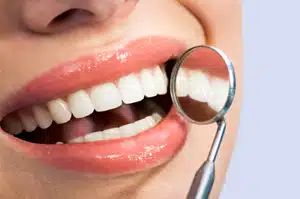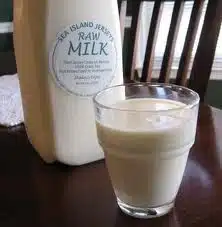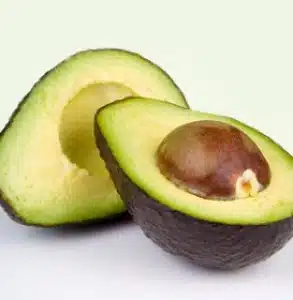
Foods That Are Good For Your Teeth
In a previous article, Foods That Are Bad For Your Teeth, I reviewed three broad categories of foods that can be detrimental to your dental health. These were sugars and sweeteners, low fat foods, and foods that contain white, especially bleached, flour.
With this article I would like to spend some time talking about an area that I feel receives entirely too little attention – whether by patients, or dentists, for that matter. Possibly, this comes about for the simple reason that by the time many patients arrive at the dentist they are looking for resolution of a specific problem. In this sense, the market has conditioned both patients and doctors into focusing upon the end-game.
This has its place and fills a need. Patients who are in pain do not generally want to hear about what they should be eating – they want to handle their pain. Yet, knowing what foods can repair teeth may be a key element in establishing their future long-term dental stability.
In today’s economic climate, health care has undergone many challenges and the consumer has been faced with high medical and dental costs. Consequently, health care is not infrequently reserved for the handling of emergencies. This is actually counter-productive, as emergency dental care is also expensive. Couple this with efforts by the patient to reduce costs, and the “treatment” may be a decision to remove the offending tooth. Later, when the patient starts to regret his choice and seeks tooth replacements, he may find that replacement costs are many times more than had they handled the problem once discovered.
Economics can also influence the quality of the food we consume. In an effort to save money many consumers will also select lowest cost items. These are typically quite profitable for the producer but are usually highly processed and very unprofitable for your health.
So what do you need to know?
Let’s start with this simple concept: If what you eat comes out of a box, a jar, a can, or a plastic wrapper, it has been processed.
Your diet is the single most important thing that you can control to create or maintain a healthy mouth. When you eat too many processed foods – especially those that contain sugars and bleached flour – you create effects that may not be immediately noticed by you. For example, the level of blood sugar can become elevated and with it a person can experience elevated cortisol. Cortisol is a hormone produced by your adrenal gland and is responsible for raising blood sugar. It also affects the flow of parotin (a salivary gland hormone) and, in so doing, can lead to cavities. Cortisol also counteracts insulin which regulates carbohydrate and fat metabolism in the body, and it slows down bone formation.
The inability to metabolize fats, in turn, can keep you from benefiting from the healthy foods that can help you to repair your teeth.
So, you see, it is a little like the children’s song “The foot bone’s connected to the ankle bone. And the ankle bone’s connected the leg bone.” The bottom line: what we do – or don’t do – can have unseen and unwanted effects when it comes to our diet and teeth.
Maintaining healthy hormones is very important to your dental health as well as to your general health. The relationship between demineralization and remineralization is balanced when hormones are healthy. When unbalanced, calcium and phosphorus can be pulled out of the blood and create deficiencies in our bones as well as the teeth. It can also create a condition wherein your body becomes excessively acidic. An acid environment is more receptive to the growth of bacteria and fungi. If there is one take-home message that you take out of this article it should be that real food – namely unprocessed food, as nature intended that it be consumed – will not only support your general health, but will also support your teeth.
What foods, then, are good for your teeth?
- Proteins: Eat proteins in order to regulate blood sugar. As mentioned above, blood sugar fluctuations are one of the key reasons that we lose minerals. High quality proteins such as grass fed, or wild game are best. While I realize that this may pose a problem for vegetarians, it doesn’t alter the fact that the most productive stores of minerals, protein, and fats are derived from meats. Vegetarians must rely on eggs and cheese for their protein.
- Foods with phosphorus: Possibly more important than calcium for your teeth, phosphorus can be obtained from milk and cheese. Raw, unpasteurized milk is best. Unless, strictly vegan, vegetarians should have no trouble getting their phosphorus from these sources. Other good sources of phosphorus include organ meats of both land animals and those from the sea. Muscle meats (most common meats consumed, i.e., not from organs such as liver or kidney, for example) are also a good source, as are beans and nuts. Organ meats have more phosphorus than muscle meats. Although present in some grains, the quantities can be insufficient or difficult to absorb, and this may not be the best choice for your teeth.
- Trace minerals are important: In addition to phosphorus, the following deficiencies can also lead to problems with tooth decay – iron, copper, magnesium and manganese. Foods with iron include shellfish and organ meats. Copper is found in liver and mollusks. Smaller amounts exist in mushrooms. Magnesium can be found in fish, nuts, and spinach. Manganese, also important in the regulation of blood sugar, occurs in liver, kidneys (organ meats), mussels, nuts, and pineapple, to name a few sources. Other trace minerals may also play a role, but are too numerous to mention here.
- Healthy fats: These are a great source of energy, but are also important to help maintain hormonal function and balance. Among the healthy fats are olive oil, butter, beef, chicken, pork and duck fat. Avocado and coconut oil are also healthy fats, especially if from organic sources. Vegetable fats do not generally contain the vitamins that help to re-build our teeth.
- Fat soluble vitamins D and A: Simply put, without adequate stores of these two vitamins, we can’t get the calcium and phosphorus into our bones or teeth. People with tooth decay are typically lacking these two vitamins. Seafood is an excellent source of Vitamin D. If you don’t have easy access to seafood, or if you don’t like it, lard, or pork fat, will help. Suet, or beef fat appears to be more effective, however. Another excellent (and relatively simple) way to get Vitamin D is with daily exposure to sunlight. Consuming fermented cod liver oil is still another easy way to get Vitamin D into your diet.
Eating healthy is the single-most effective action you can take to protect your teeth – and your overall health. It is also one thing that you can control. Take the time to learn which foods can provide you with proteins, phosphorus, healthy fats, vitamins D and A, as well as trace minerals, and you will be well on your way to healthier teeth and gums!






